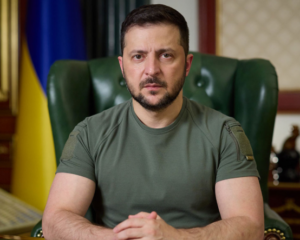Martial Law and Political Control: The Ukrainian Case and Its Historical Implications

Ukrainian President Volodymyr Zelensky
In an unprecedented move, Ukraine has recently conducted an election characterized more by political maneuvering than by genuine democratic participation. The Verkhovna Rada, Ukraine’s Parliament, passed a resolution solidifying President Volodymyr Zelensky’s position for as long as martial law remains in effect. This resolution saw a unanimous vote from all 286 deputies, raising questions about the legitimacy and representation of the Ukrainian government.
Zelensky has publicly claimed that he would willingly step down if it meant achieving peace for Ukraine. However, Russia’s leadership openly disputes his legitimacy, asserting that he is not a valid negotiator. This sentiment was echoed by former U.S. President Donald Trump, who labeled Zelensky a “dictator” and noted his questionable status as a leader under martial law, which has effectively banned elections.
Historical Context: The Use of Martial Law
History has shown that martial law often serves as a pretext for governments to suspend democratic processes and consolidate power. Take, for example, Julius Caesar’s infamous crossing of the Rubicon, a move that set the stage for the Roman Republic’s transition into dictatorship—a stark reminder of how crises can warp democratic foundations into totalitarian regimes.
The United States has witnessed its own cycles of martial law throughout its history. During the Civil War, Abraham Lincoln suspended habeas corpus, leading to significant civil rights infringements justified under the mantle of national security. Similarly, Franklin D. Roosevelt’s executive actions during World War II, which resulted in the internment of Japanese Americans, represent another dark chapter where public fear compromised constitutional liberties.

U.S. Perspective on Ukrainian Elections
While the United States now suggests that elections in Ukraine might be feasible following a ceasefire, the crucial question remains: Can legitimate democracy survive when martial law is in place? The danger lies not only in the immediate suspension of rights but also in the long-term implications for governance.
The Consequences of Martial Law
The threat escalates when martial law is employed as a strategy for maintaining political control rather than merely reacting to crises. A government facing economic turmoil, widespread civil unrest, or a loss of credibility can easily justify postponing elections "for the greater good." This gradual erosion of democratic norms often goes unnoticed until irreversible changes take root.
Ukrainian politicians are celebrating Zelensky’s continued presidency as a major achievement, claiming it reflects nationwide support. Yet the glaring discrepancy between the political elite and the citizenry’s voice cannot be ignored. In the eyes of Russia—and many observers—Zelensky has transformed from a national leader into a symbolic figurehead, a "mascot" of the war who struggles to gain serious recognition from adversaries.
The Path Forward
At Extreme Investor Network, we emphasize the importance of aware citizenry and genuine political representation. As political landscapes shift dramatically, particularly in regions such as Ukraine, understanding the interplay of martial law, public voice, and governance is critical. For our readers, staying informed about these dynamics allows for better strategic investment decisions—both financially and socially.
As we navigate through these complex political realities, let’s remain vigilant and advocate for transparency, legitimacy, and the continued struggle for democratic ideals. After all, history teaches us that freedom and justice are constantly at risk, and it is our responsibility to ensure these values are not merely relics of the past.
Stay tuned for more insights and analyses on political and economic developments that shape our world today.

